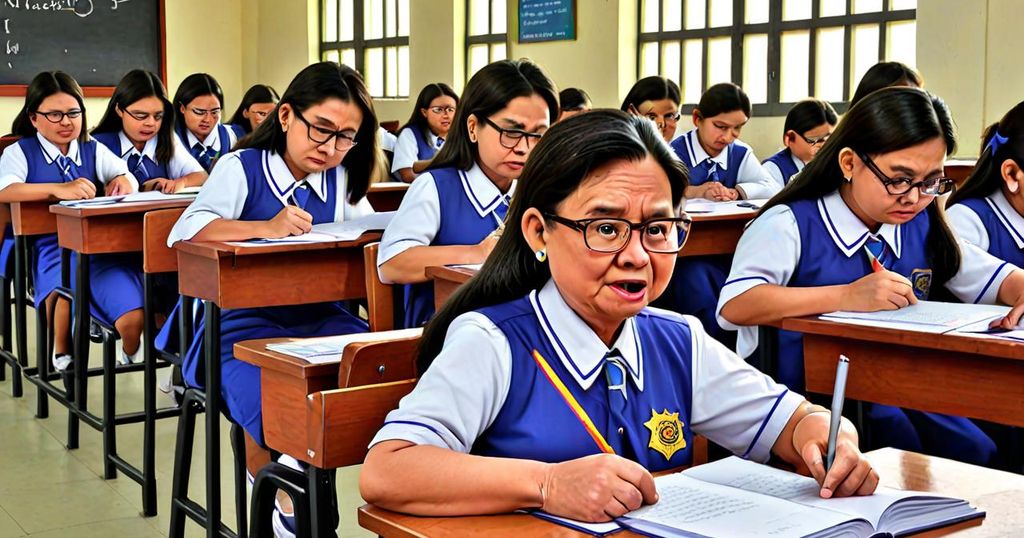The recent decision by the Department of Education (DepEd) to eliminate the name “Marcos” from the term “dictator” in its curriculum has garnered significant attention. According to Jocelyn Andaya, Director of the DepEd Bureau of Curriculum and Development, curriculum specialists made this decision in the context of aligning and organizing the lesson guide for Araling Panlipunan.
During a press conference, Andaya confirmed the authenticity of the internal memorandum directing the change from “Diktadurang Marcos” to mere “Diktadura” in the Grade 6 Araling Panlipunan curriculum. She emphasized that the decision was reached following a thorough review by various bureaus under the curriculum strand, and stressed that it was made independently, without outside influence.
It was emphasized that the revised curriculum focused on presenting historical events and themes without specific reference to any individual. Andaya also refuted claims of “historical revisionism” in the word change, stating that it was a purely academic decision.
The revised curriculum is considered a “living document” that can be adjusted after undergoing a thorough review process. However, the decision to remove “Marcos dictatorship” has faced criticism from groups who argue that it whitewashes the crimes committed during the Marcos regime.
Andaya clarified that the curriculum revision is an iterative process and assured that teachers are free to use the term “Marcos dictatorship” and other relevant terms in their lessons. She also emphasized the importance of presenting different perspectives and allowing open discourse in the classroom.
In response to concerns that the decision may be influenced by political motives, Andaya stated that Vice President and Education Secretary Sara Duterte does not involve herself in the details of curriculum revisions and instead focuses on the “big ideas.”
The controversy surrounding the removal of “Marcos dictatorship” from the curriculum has sparked a debate on the portrayal of historical figures in educational materials. It has also raised questions about the responsibility of educational institutions to present a balanced and accurate view of history.
As the issue continues to unfold, it remains to be seen how DepEd will address the criticism and how educators will navigate the changes in the curriculum. The decision has undoubtedly sparked discussions about the representation of historical figures in academic settings, and it will be interesting to see the outcome of these ongoing debates.
In conclusion, the decision to remove “Marcos dictatorship” from the curriculum has prompted a heated discussion about historical representation and educational integrity. With the controversy far from settled, it is evident that this issue will continue to be a topic of interest and scrutiny in the education sector.

Leave a Reply